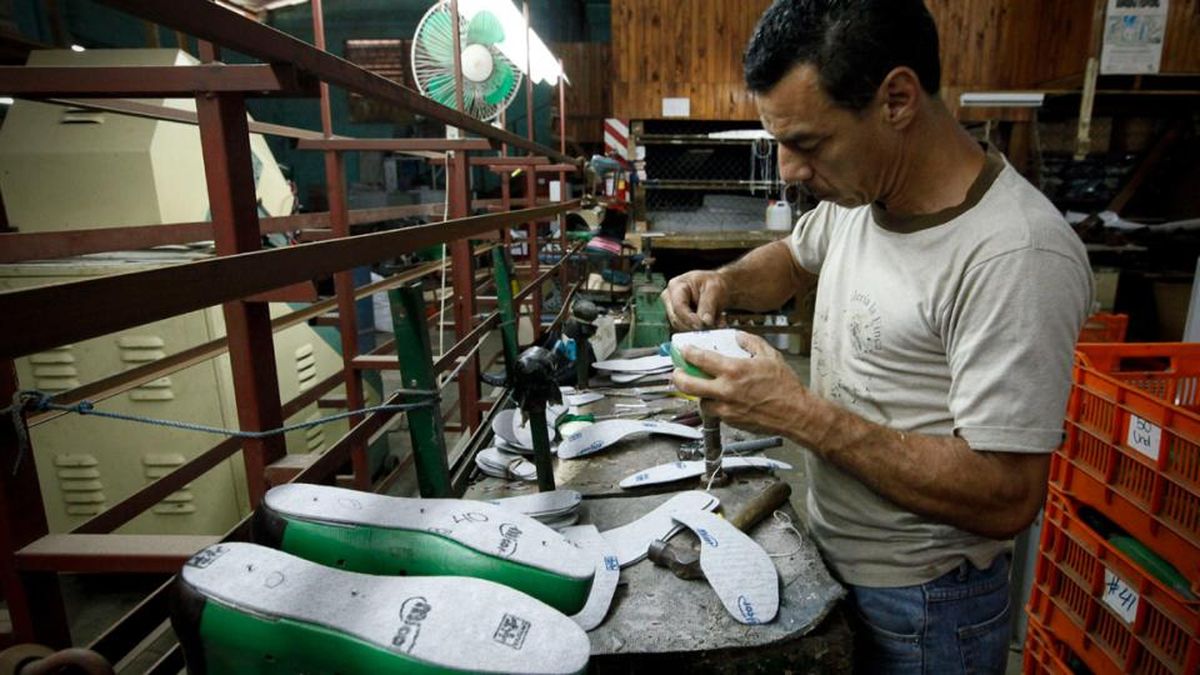The plant of the Dass company in Eldorado it laid off 45 workers. Gustavo Sánchez confirmed it, delegate of the Footwear Workers Union (UTICRA). Among the problems that the company has been facing include the lack of imported products.
Sánchez confirmed the difficult situation they are going through: “We are going through a very complicated situation. To date we have already received notification of 45 layoffs. We are going through a situation of uncertainty due to the lack of imported products and the lack of payments in dollars to the supplier,” he stated in Misiones Online.
According to Sánchez, the company has made the decision to reduce the number of staff due to the inability to maintain production with available inputs.
Consequently, lack of foresight and the complex economic situation of the country are reflected in the company’s decision to reduce its staff. “The company had already seen it, according to it the situation is impossible to sustain with the amount of inputs received. They constantly allege the lack of payment of foreign currency to the supplier in Brazil,” said Sanchez.
The situation at the Dass plant reflects a problem that seems to extend to other companies in the sector in the country, with difficulties linked to the import of inputs. “We understand that the majority of companies that are importing are having these problems“said Sánchez.
It is worth mentioning that months ago the firm was hiring new workersbut from the union they assured that the layoffs are to personnel from different sectors and with different years of seniority.
Imports: the debt already reaches US$43,000 million
According to the Central Bank (BCRA) itself, in its latest Monetary Policy Report (IPOM) it estimated that the debt for imports of goods would have registered an increase of about 11.8 billion dollars in the first 9 months of the year. This way, The stock of debt for imports of goods accumulated in the last twelve months amounts to 43,000 million dollars. This, for example, today It is equivalent to 1.7 times the stock of total gross reserves of the BCRA.
With respect to the official estimate, the BCRA clarifies that the data was calculated based on the stock of debt as of the second quarter of the year that arises from the Survey of External Assets and Liabilities and the debt on imports of goods for July, August and September estimated from the difference between imports and import payments through the exchange market.
It is worth noting that The relationship between external debt and the level of imports rose 13.7 percentage points to reach almost 52%. This is the highest level since the end of 2020. A year ago, commercial debt with foreign suppliers of goods barely represented 34% of total shipments.
Already the technical mission of International Monetary Fund (IMF), led by Luis Cubeddu, had put emphasis on this issue in the last Staff Report of the 5th and 6th review of the current expanded agreement (EEF) with Argentina. In this document, the IMF indicates that the stock of import financing had reached a historical maximum of 38 billion dollars, in the middle of the year. “This represents around 60% of total imports, compared to a historical average of 39%,” the Fund explained.
Source: Ambito




